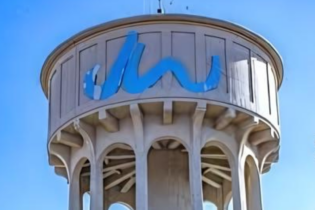South African National Road Agency SOC Ltd. bond yields have fallen to record lows after a government pledge to back the debt, avoiding a possible default.
The yield on the rand debt due in 2020 dropped 54 basis points to 7.69 percent in the past month, the biggest decline since October, according to data compiled by Bloomberg. The extra yield investors demand to hold the agency’s debt over similar-maturity government bonds has shrunk to 46 basis points, the narrowest since November 2010. The premium is 363 basis points less than the average for emerging-market corporate debt, according to the JPMorgan & Chase CEMBI index. The government has promised to cover Sanral’s debt and secure a source of income after a court two months ago halted plans to use electronic tolls to repay bonds. The additional spending will add to pressure on South Africa’s budget as Finance Minister Pravin Gordhan seeks to rein in the fiscal deficit amid higher state-worker wages and investment to upgrade ports and railways. A default by Sanral may push rating companies to downgrade the nation’s rating. “We’ve always been comfortable holding this debt and we don’t see any reason not to be,” Bronwyn Blood, who helps manage the equivalent of $3 billion in fixed-income assets at Cadiz Asset Management Ltd. in Cape Town, said by phone on June 25. “Government is not going to let this company default.” Strikes, Protests Investors are shrugging off a downgrade of Sanral’s securities by Moody’s Investors Service on May 4 by one level to Baa2, the second-lowest investment grade, with a negative outlook. South Africa is rated two levels higher at A3, on par with Italy and Malaysia. The government is covering operating expenses while Sanral can’t collect tolls on roads in Gauteng, the nation’s richest province. South Africa’s government also owns Transnet SOC Ltd., the national logistics company, the nation’s electricity supplier, airline, an oil production company and a stake in fixed-line telephone operator, Telkom SA Ltd. The ruling African National Congress last week called for more state intervention in the economy to help reduce the 25.2 percent unemployment rate. Labor union allies of the ANC threatened strikes and protests against the Gauteng Freeway Improvement Project. The Opposition to Urban Tolling Alliance, a consumer group, asked the High Court to stop the project because of high costs, saying it’s unreasonable to expect motorists to pay for the roads. The National Treasury is appealing the ruling in the country’s highest court. More Money Gordhan in February set aside 5.75 billion rand ($700 million) to help pay for 20 billion rand of debt Sanral raised to finance the improvement of 185 kilometers (115 miles) of roads and highways around Johannesburg and Pretoria, the capital. Instead, the agency used the money to pay for operating expenses to cover the revenue shortfall from a delay in implementing tolling. The Treasury may give Sanral more money to repay the debt and is considering submitting a bill to Parliament to request additional funding, Deputy President Kgalema Motlanthe said on May 31. Sanral is losing as much as 600 million rand a month, according to Gordhan. The government will “never walk away” from Sanral’s liability, Lungisa Fuzile, the Treasury’s director-general, said May 8. A default on Sanral debt would drive borrowing costs for other state-owned enterprises higher, Simon Howie, head of South African credit at Investec Asset Management, said in a telephone interview. “The impact on the funding for the other parastatals would be huge,” Howie said. Fuel LevyPublic Investment Corp., the nation’s largest pension fund manager and the biggest holder of Sanral debt, is “comfortable” with its investment in the state agency, Chief Executive Officer Elias Masilela said in an interview on May 30 in Arusha, Tanzania. PIC owns 17.7 billion rand of Sanral debt, the company said March 19 in an e-mailed statement.
The government is in talks with the Opposition to Urban Tolling Alliance about alternative funding, including an option for a levy on the fuel price, according to a joint statement. Sanral started raising funds before South Africa hosted the 2010 Soccer World Cup to expand and widen freeways around Johannesburg and ease traffic congestion that threatened to block access to stadiums in the country’s most-populous city. Budget Deficit Gordhan has criticized Standard & Poor’s, Moody’s Investors Service and Fitch Ratings for cutting South Africa’s rating outlook to negative from stable, saying the decisions are unjustified given a pledge to narrow the budget gap. The Treasury has forecast the deficit will fall to 3 percent of gross domestic product in the year through March 2015 from 4.5 percent in the last fiscal year. Funding Sanral’s shortfall and repaying debt won’t impact on the deficit forecast, Gordhan said on May 23. Investors are ignoring the ratings-company warnings of a possible sovereign downgrade, with bonds gaining and the rand recovering. The rand has climbed 4.8 percent against the dollar since the start of June, the fourth-best performer of 16 major currencies tracked by Bloomberg. It declined for the first time in three days, retreating 0.1 percent to 8.1714 a dollar by 6 p.m. yesterday. The extra yield investors demand to hold South African dollar bonds rather than U.S. Treasuries has dropped 42 basis points this year to 219, according to JPMorgan Chase & Co.’s EMBIG indexes. That compares with 215 for Poland, rated one level higher at A2, and an average of 380 for emerging-market nations in JPMorgan’s EMBIG indexes. Credit Swaps The cost of protecting South African dollar-denominated sovereign debt against non-payment for five years using credit- default swaps has declined 46 basis points this year to 156, down from the year’s high of 219 on Jan. 5, according to data compiled by Bloomberg. That compares with 312 for the average of emerging-market countries in eastern Europe, Middle East and Africa. The contracts pay the buyer face value in exchange for underlying securities or the cash equivalent if the government fails to adhere to its debt agreements. Yields on South Africa’s 6.75 percent bonds due 2021 dropped 52 basis points this month to 7.24 percent, according to data compiled by Bloomberg. Sanral bonds, with their government guarantee, are an attractive alternative even though the bonds are less liquid than their government counterparts, Cadiz’s Blood said. “It’s a no-brainer,” Blood said. “You get a yield pickup which compensates you for the liquidity risk.”





